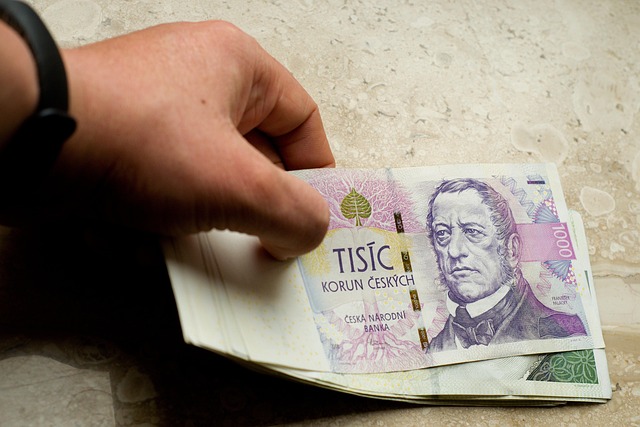UK residents with high-interest credit card debt can alleviate strain through consolidation loans, offering lower rates and single payment dates. While debt settlement is faster, it requires negotiation skills. Government-backed loans provide flexible terms for bad credit cases. Budgeting, refinancing, and non-profit counseling aid in managing and consolidating debt effectively, leading to financial wellness.
Struggling with overwhelming credit card debt? Explore effective and inexpensive debt consolidation options to regain control of your finances. This comprehensive guide provides a roadmap to navigating various strategies, from understanding credit card debt consolidation to leveraging government-backed loans and non-profit assistance. Learn how budgeting and DIY tips can help manage and reduce debt. Discover the best path forward for financial freedom.
- Understanding Credit Card Debt Consolidation
- Low-Cost Strategies for Debt Relief
- Explore Government-Backed Loan Options
- Balancing Act: Budgeting for Consolidation
- Non-Profit Organizations and Debt Assistance
- Do-It-Yourself Tips for Debt Management
Understanding Credit Card Debt Consolidation

Credit card debt consolidation is a strategic approach to managing high-interest credit card debt. It involves combining multiple credit card balances into a single loan with a lower, fixed interest rate. This simple yet powerful strategy can significantly reduce monthly payments and help UK residents regain control of their finances. By consolidating, individuals can say goodbye to the hassle of making multiple payments each month and the stress of keeping track of various due dates.
This method offers more than just convenience; it provides an opportunity for debt help. With lower monthly credit card payments, borrowers can allocate their savings towards paying off the consolidated loan more swiftly. Additionally, as opposed to debt settlement, which may involve negotiating with creditors to reduce the overall debt amount but could impact one’s credit score, consolidation focuses on simplifying repayment terms without necessarily lowering the total debt.
Low-Cost Strategies for Debt Relief

Many people struggling with credit card debt seek effective yet inexpensive solutions for relief. Thankfully, there are several low-cost strategies to consider that can help individuals regain financial control. One popular option is debt settlement, which involves negotiating with creditors to accept a lower repayment amount. This approach not only reduces the overall cost of debt but also provides a faster path to elimination compared to traditional credit card debt consolidation loans.
Exploring the find best debt consolidation services can be overwhelming, but understanding the differences between various options is key. While debt settlement offers a potential route to get rid of credit card debt completely, it’s important to note that successful negotiation requires discipline and timely payments. In contrast, debt consolidation through secured or unsecured loans might provide more stability with fixed interest rates but typically extends the repayment period, adding up costs over time. Choosing the right method depends on individual circumstances and a clear understanding of each strategy’s implications.
Explore Government-Backed Loan Options

When it comes to managing credit card debt, exploring government-backed loan options can be a game-changer for many individuals. These programs are designed to offer affordable and accessible debt consolidation tools for those struggling with high-interest rates and multiple creditors. One such option in the UK is the Government’s own-source debt management schemes, which provide a structured approach to repaying debts and improving financial health.
For those with bad credit, there are still avenues to explore. Several government initiatives cater specifically to individuals facing challenges due to less-than-perfect credit scores. These loans often come with more flexible terms and lower interest rates compared to traditional banking options, making them an attractive choice for debt consolidation in the UK. With these programs, consolidating credit card debt becomes a viable strategy to regain control of finances and move towards a debt-free future.
Balancing Act: Budgeting for Consolidation

Balancing your finances to accommodate credit card debt consolidation can seem like a daunting task, but it’s a crucial step towards financial freedom. Before diving into any consolidation options, it’s essential to assess and manage your budget effectively. The first step is to track your expenses, ensuring every dollar spent aligns with your priorities. This involves scrutinizing even the smallest purchases to identify areas where you can cut back, ultimately freeing up funds for debt repayment.
Once you’ve mastered budgeting, you can start considering strategies like refinancing credit cards or exploring consolidation loans. Legally consolidating credit card debt offers several advantages, including reduced interest rates and more manageable monthly payments. This method allows you to streamline multiple credit card bills into a single, consolidated loan, making it easier to stay on top of your repayments and ultimately reduce your credit card debt over time.
Non-Profit Organizations and Debt Assistance

Many non-profit organizations offer debt assistance and credit card debt consolidation programs to help individuals and families manage their financial burdens. These organizations provide valuable resources and support for those struggling with overwhelming debt, offering a range of services such as counseling, education, and even direct loan consolidation. Their primary goal is to empower people to regain control over their finances without incurring additional costs or stress.
By leveraging the expertise of these non-profit entities, individuals can explore options like debt management programs and discover tailored solutions to consolidate my loans, leading to long-term financial stability. Local communities often have access to such debt consolidation services near me, making it easier for folks to connect with much-needed assistance without breaking the bank.
Do-It-Yourself Tips for Debt Management

Managing your debt effectively can seem daunting, but with a few DIY tips, you can take control and work towards debt relief options. The first step is to create a detailed budget that accounts for all your income and expenses. This allows you to understand the extent of your credit card debt consolidation needs. Prioritize paying off high-interest debts first; these can accumulate quickly and cause financial strain. Consider using the debt snowball method, where you pay off the smallest debts first and then work your way up to the larger ones, gaining momentum as you go.
Additionally, explore secure credit card debt consolidation options by transferring balances to cards with lower interest rates or promotional periods. This strategic move can significantly reduce the overall cost of your debt. Remember that effective debt consolidation strategies often involve a combination of cutting expenses, increasing income, and negotiating with creditors for better terms.
Credit card debt consolidation can be a powerful tool for managing high-interest debt. By exploring various affordable options, such as government-backed loans and non-profit assistance, individuals can take control of their finances. Remember that creating a solid budget is key to long-term success after consolidation. With careful planning and the right strategies, alleviating credit card debt is achievable, allowing for greater financial freedom.
